

After our holiday in Makronissos last month, I fancied getting away to somewhere more remote. Somewhere restorative where we could chill out and refuel before the start of the new school year.
We chose Pomos because I love the coastline along Chrysochou Bay. The beaches are more crowded with turtle nests than tourists. Parts of the coastline are untouched and the sheer size of the bay brings a unique energy. One of expansiveness, where you feel part of the sea, the sky and the mountains. It’s invigorating.

We booked last-minute and weren’t able to find available accommodation in Pomos. Instead we stayed at the Kritos apartments in Argaka, a village 10km west of Pomos. What a find! For €80 a night we stayed in a basic, clean two-bedroom apartment with a fantastic garden. Goobie called it ‘The Rainforest’ because of the diversity of trees. Pines, palms, banana trees, various flowering trees and a majestic jacaranda. In the centre of The Rainforest was an idyllic pool. We enjoyed some wonderful downtime there.
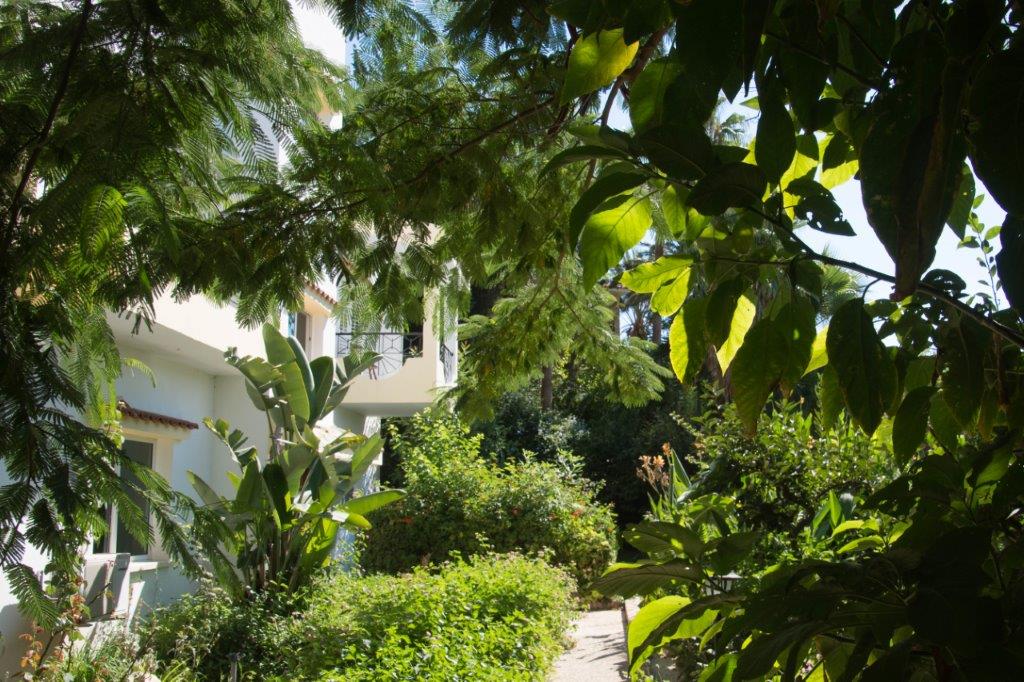
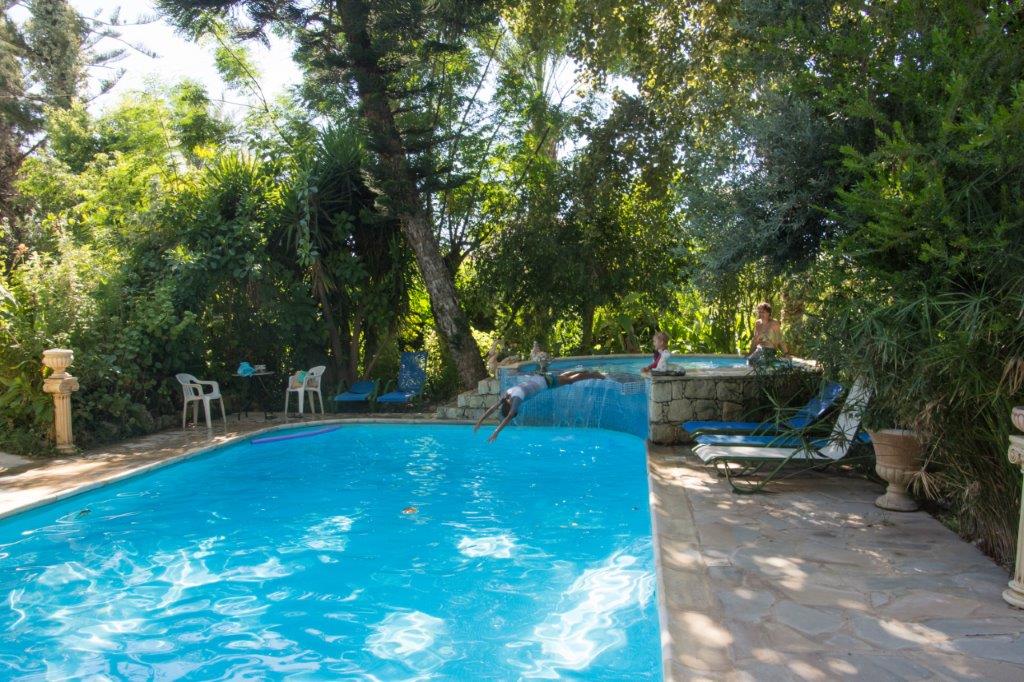
Our focus, though, was exploring Pomos. There are a number of churches in the area, plus the Pomos Natural History Museum, but we quickly decided that a mid-August visit would be all about the sea.
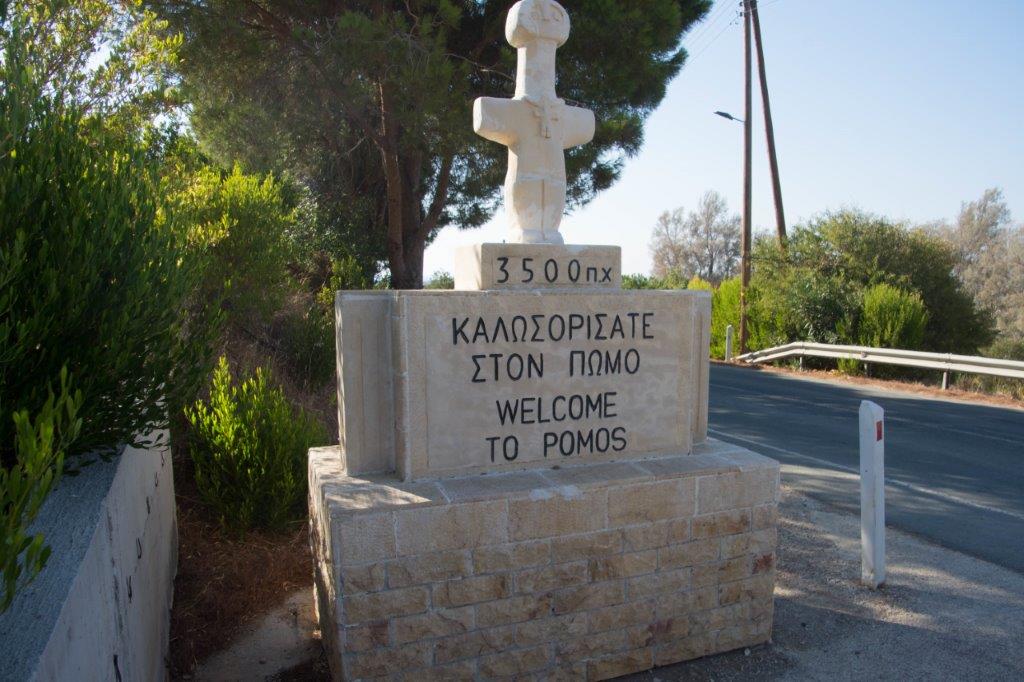
Our first port of call was Dragon Cave, so-called because a dragon used to live in it and protect the area from robbers. The cave is signposted from the road but it’s best to refer to Google Maps because the sign is tiny and easily missed. There are places to park just off the main road. A narrow path leads you to the edge of a low cliff with steps curving down to the pebbly beach.
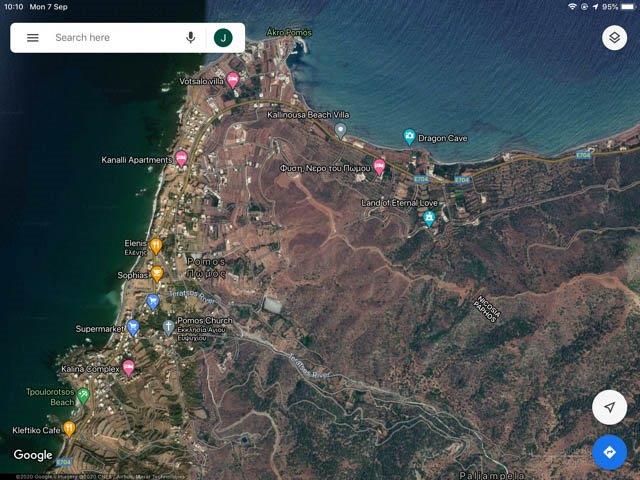
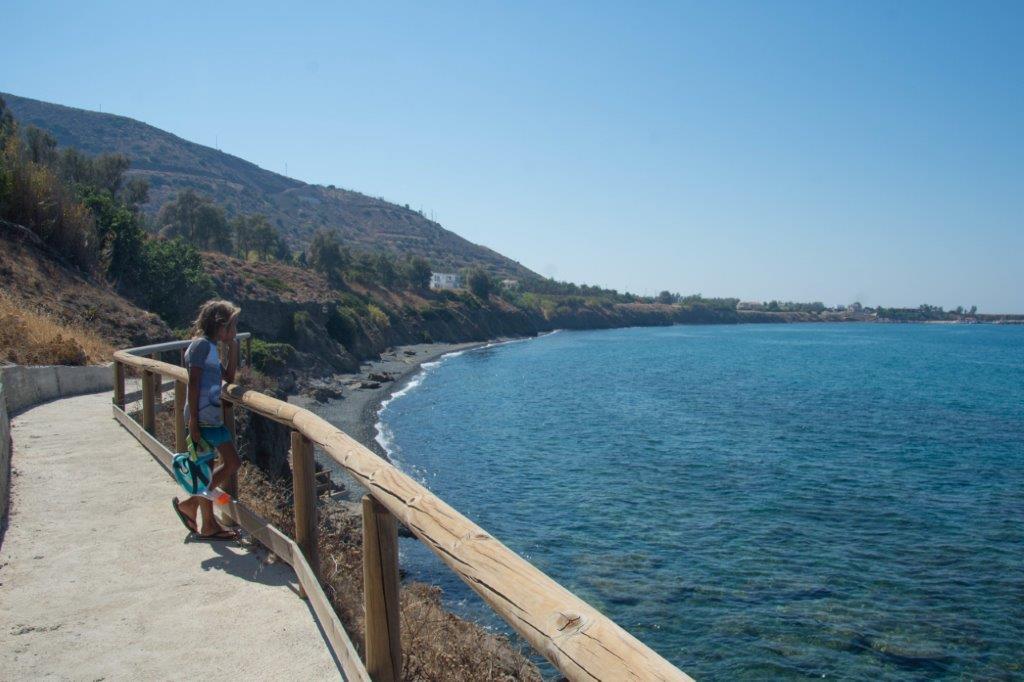
Once you reach the bottom you realise that the cliff you were on is actually the roof of the cave. And it’s a good-sized cave too, stretching quite far back into the rock.
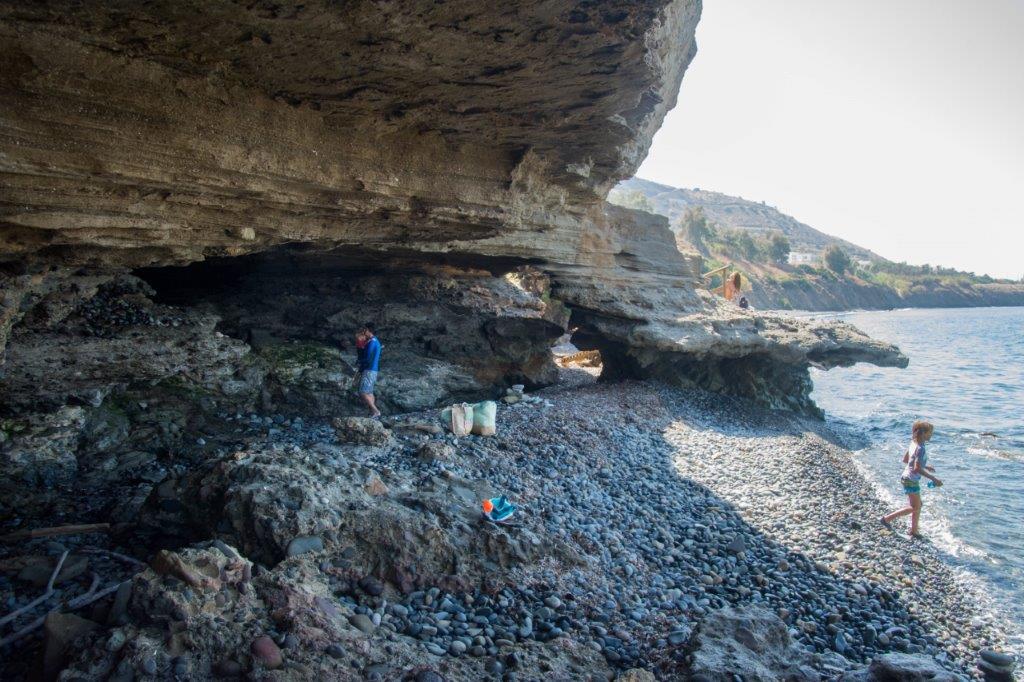
What’s interesting about Dragon Cave is that there appears to be a spring in its centre that sends a trickle of water down to the beach.
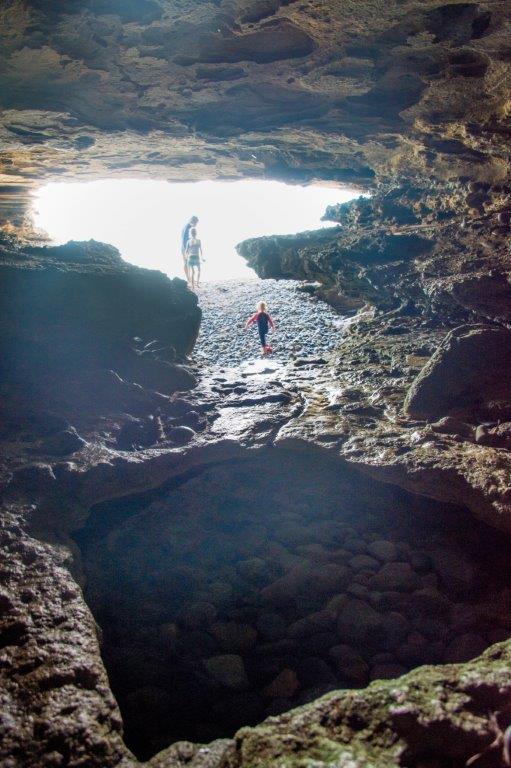
It’s in a pretty spot. Pomos harbour is to the west and the Turkish enclave Kokkina is to the east. The sea was warm and inviting, though the snorkelling wasn’t particularly great on the day we went.
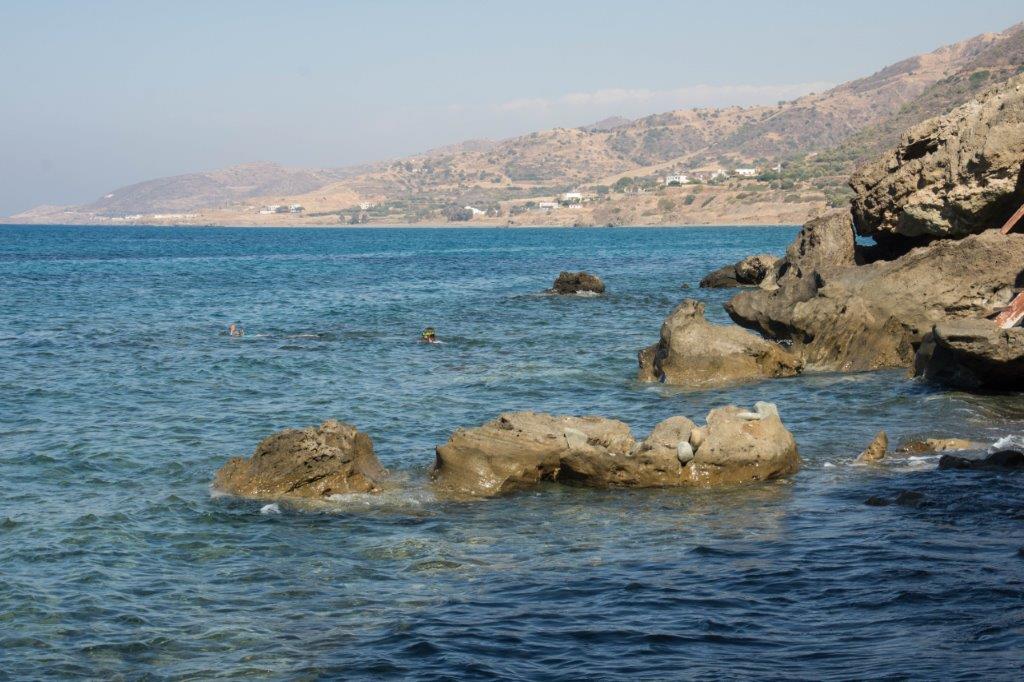
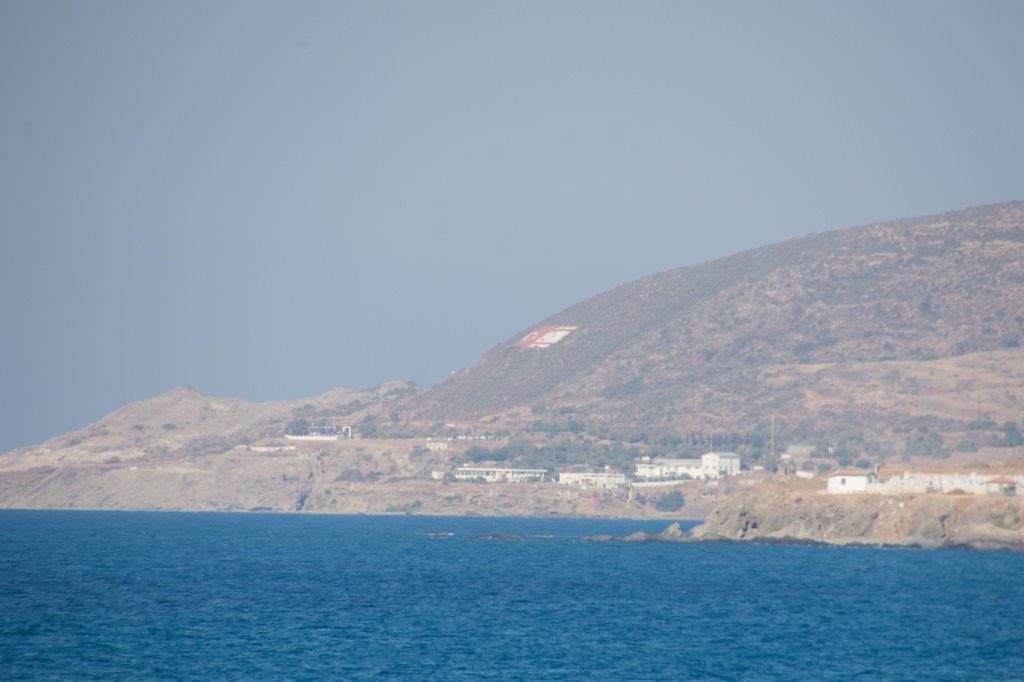
The snorkelling by Pomos harbour was much better though. We stopped off to have a look at the tiny harbour and noticed a small beach behind it. A beach with a surprisingly big atmosphere for its size. A little beach bar pumped out tunes to the handful of tourists chilling on sun beds beneath palm umbrellas. It felt a tad Caribbean.
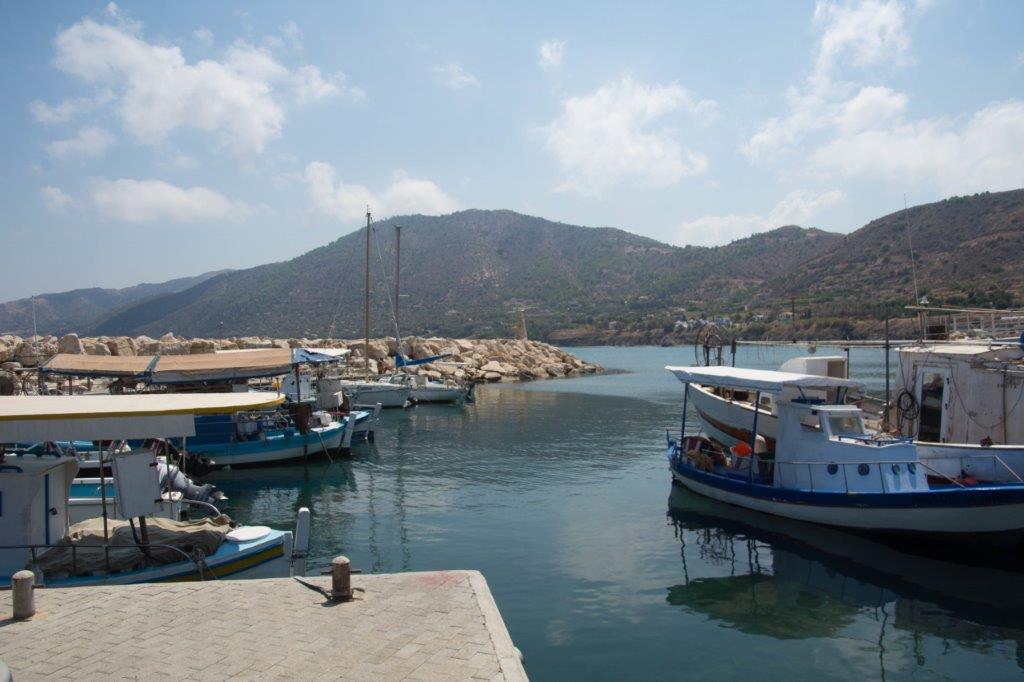
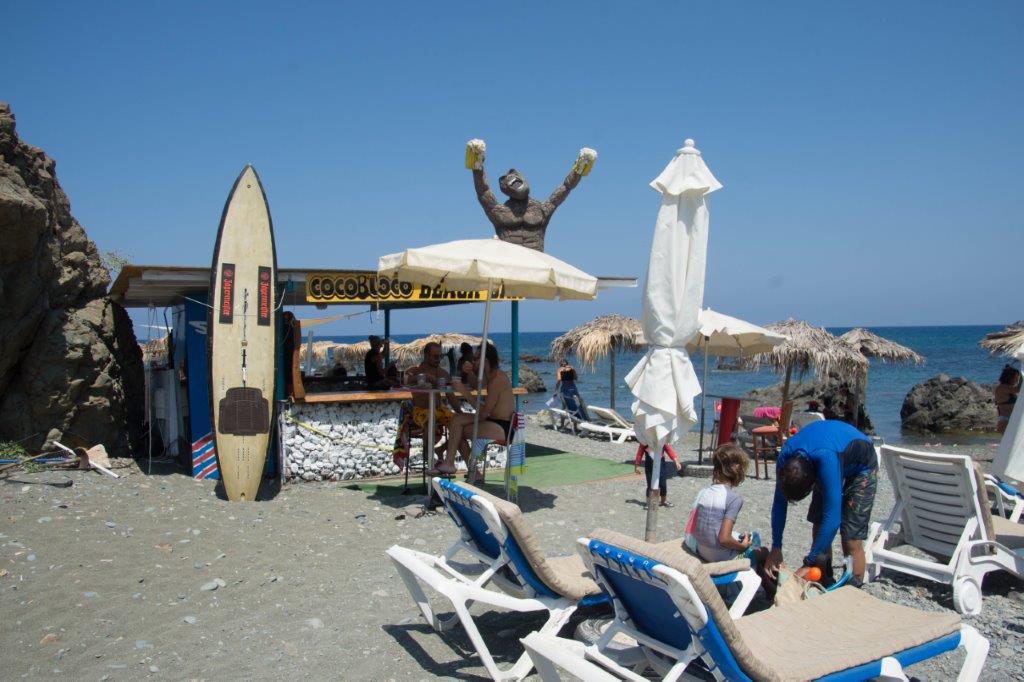
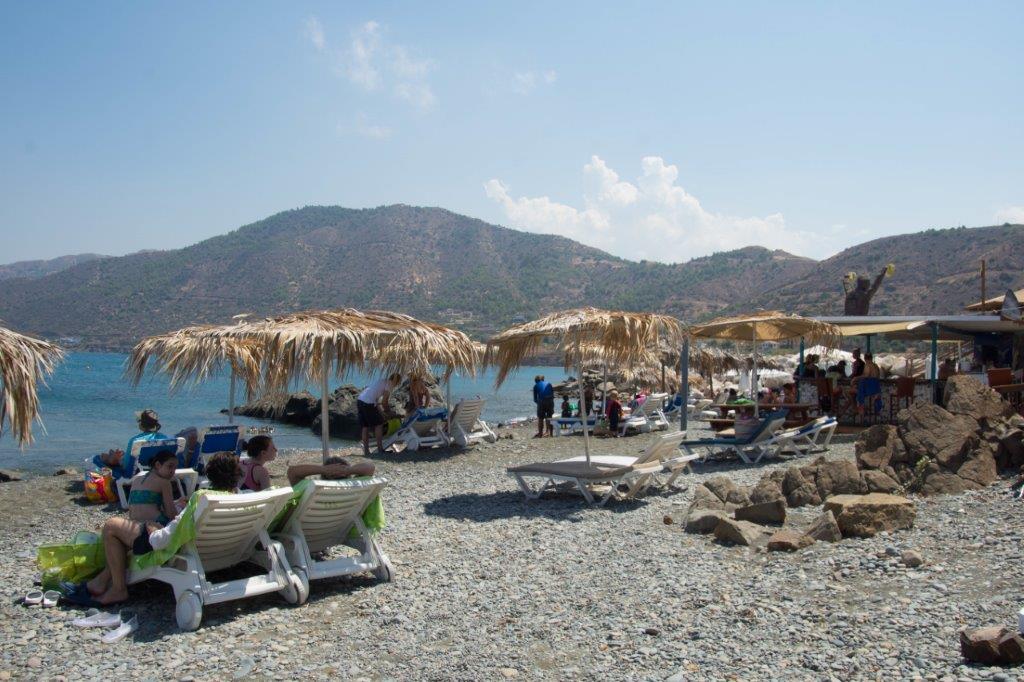
Herc attempted to nap on one of those beds (ha!) while Goobie and I went for a snorkel. There are loads of submerged rocks just offshore with channels between them that feel like underwater thoroughfares. It was an interesting seascape and we saw loads of fish.
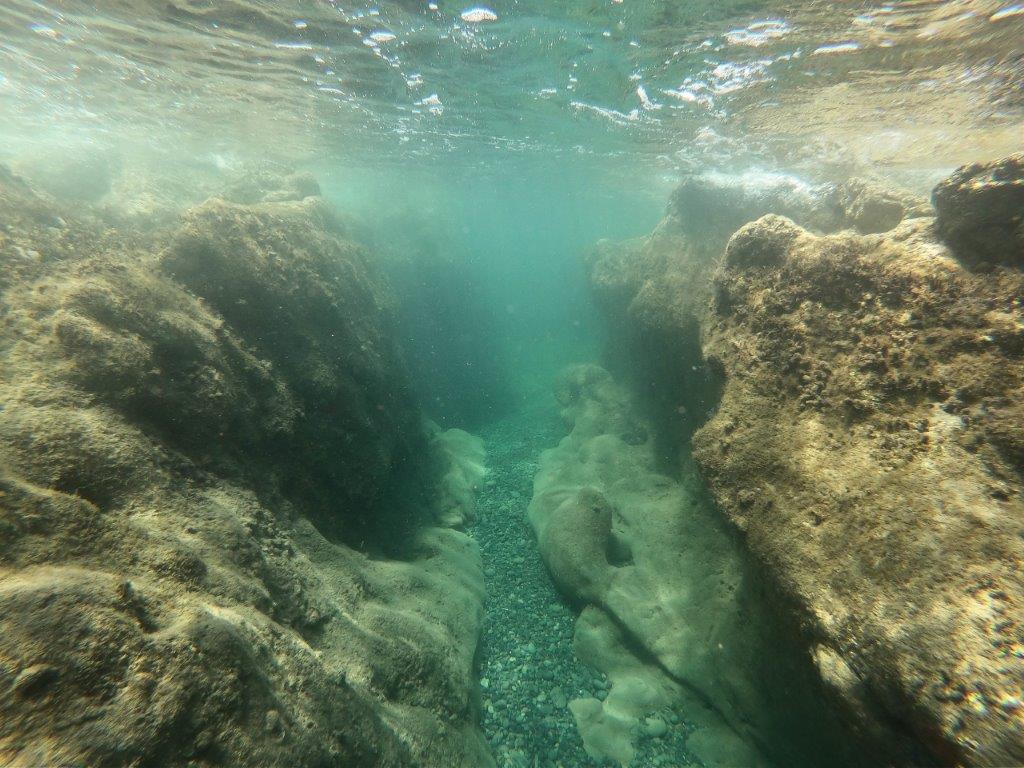
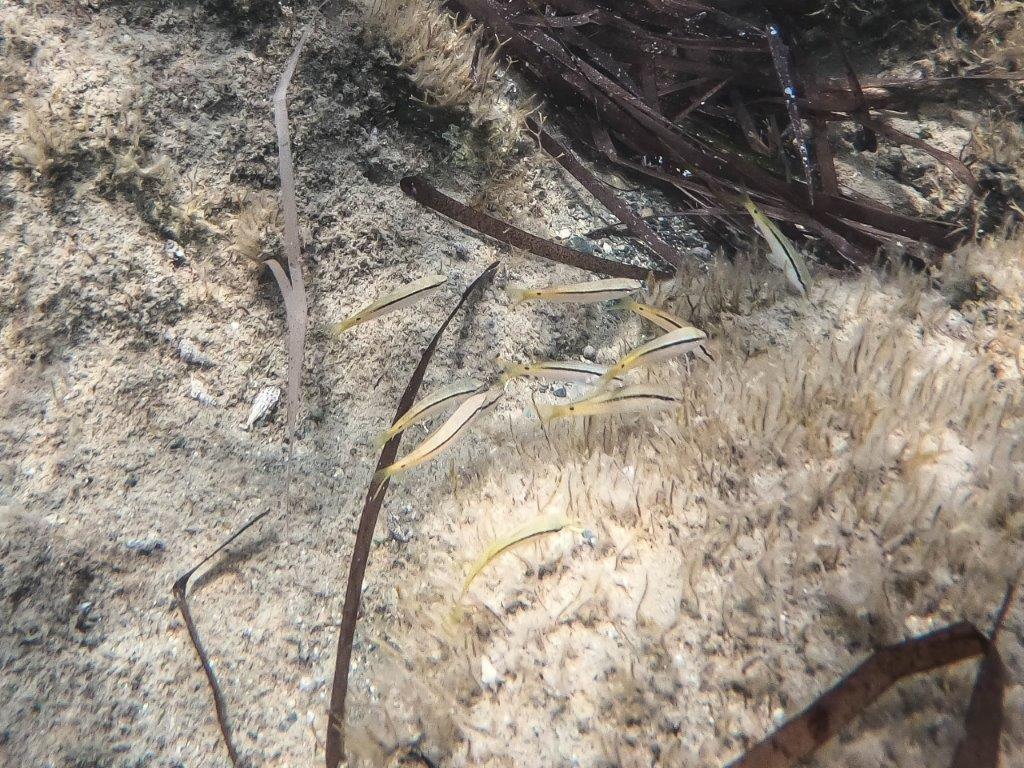
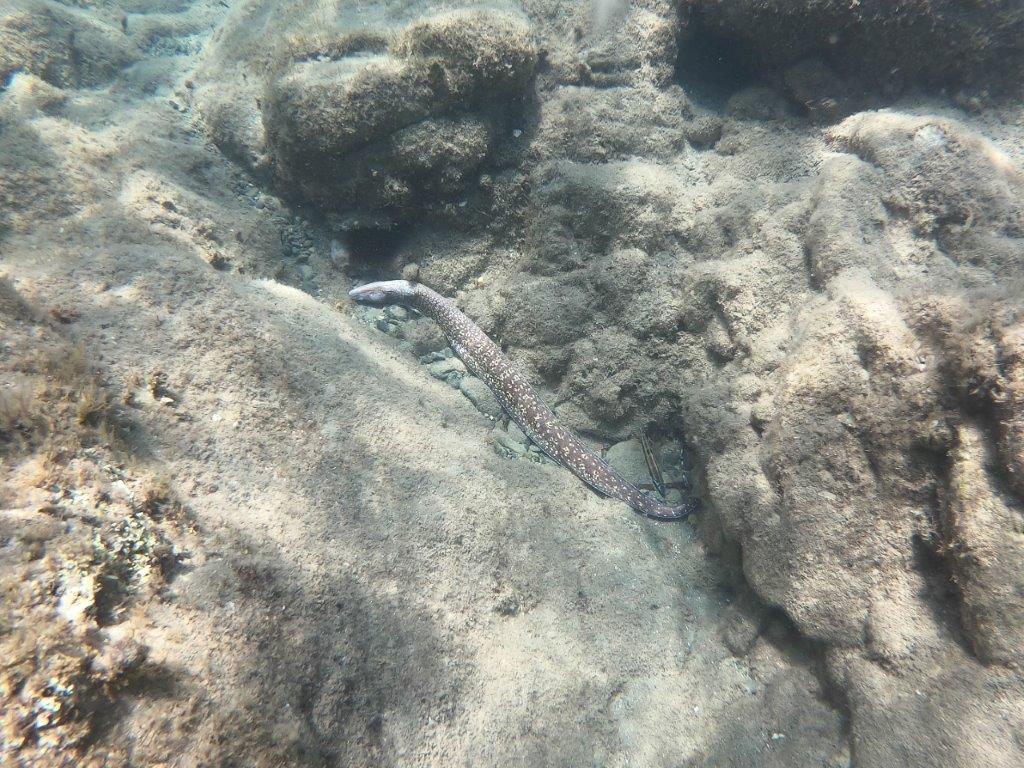
We’d had fun in Pomos so far, but I returned to Kritos apartments with a nagging feeling that we’d just visited the most obvious places. That Pomos was hiding something special. I studied Google satellite images and zoomed right in. The Pomos/Nea Dimmata coastline is lined with little coves at the bottom of steep cliffs. Probably inaccessible on foot, I thought.
‘Tomorrow, let’s just go there and see what we see.’ I suggested to Matt.
The thing I love most about Cyprus is that just going somewhere to ‘see what you see’ almost always turns into a brilliant day out.
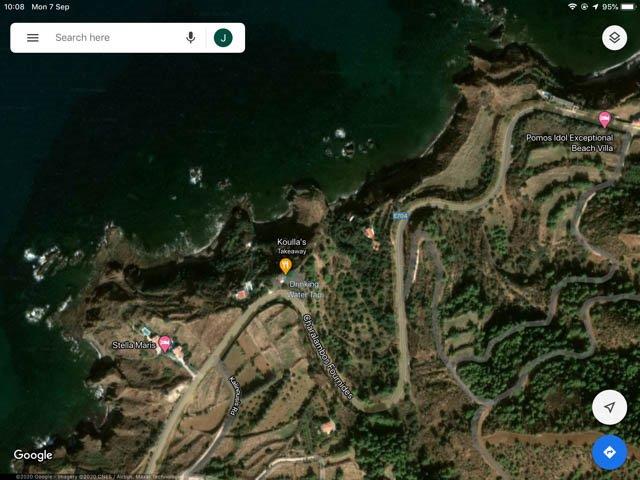
Next day we picked a cove on the map and decided to head for it. I chose one just behind Koulla’s Takeaway because it was in shadow on the satellite images and looked the most mysterious.
As we got nearer, the flat coastline became rocky and rose up into cliffs. The beaches and bays disappeared behind them. We parked next to Koulla’s Takeaway and got out to have a look. A small track led downhill and seemed to come to an abrupt end overlooking stunning coastline.
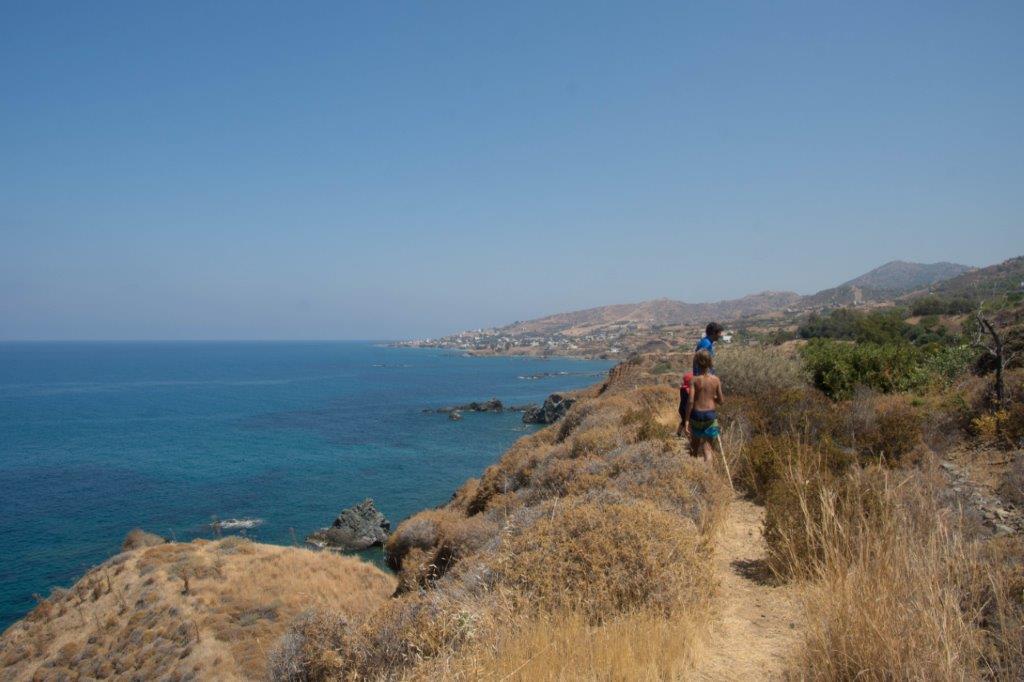
We were about to head back when I noticed the track didn’t end there. It continued through an overgrown bush. Again it seemed to end abruptly at a bench. From here I caught sight of our mystery cove. And it was beautiful and isolated – and far, far beneath us.
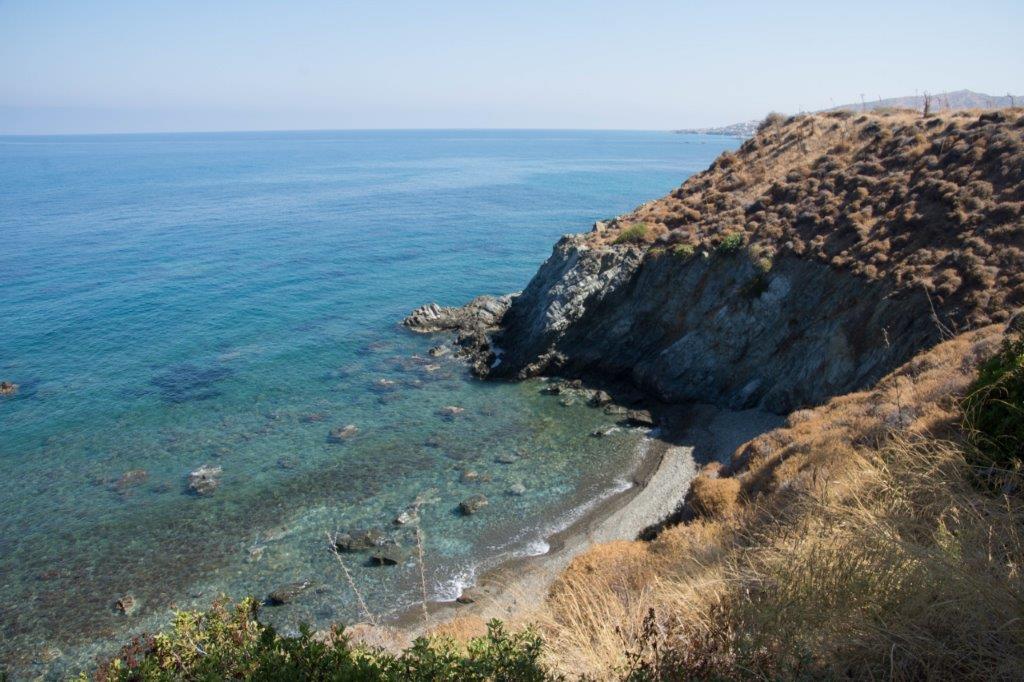
There was no way we could climb down a slope that steep. Particularly with Herc. Go and explore Paradise Beach instead, my mind told me. Paradise Beach is a better-known cove, with a name and a label on Google Maps. But I so desperately wanted to reach the magical little cove beneath us. I could even see reef in the clear water and imagined the snorkelling.
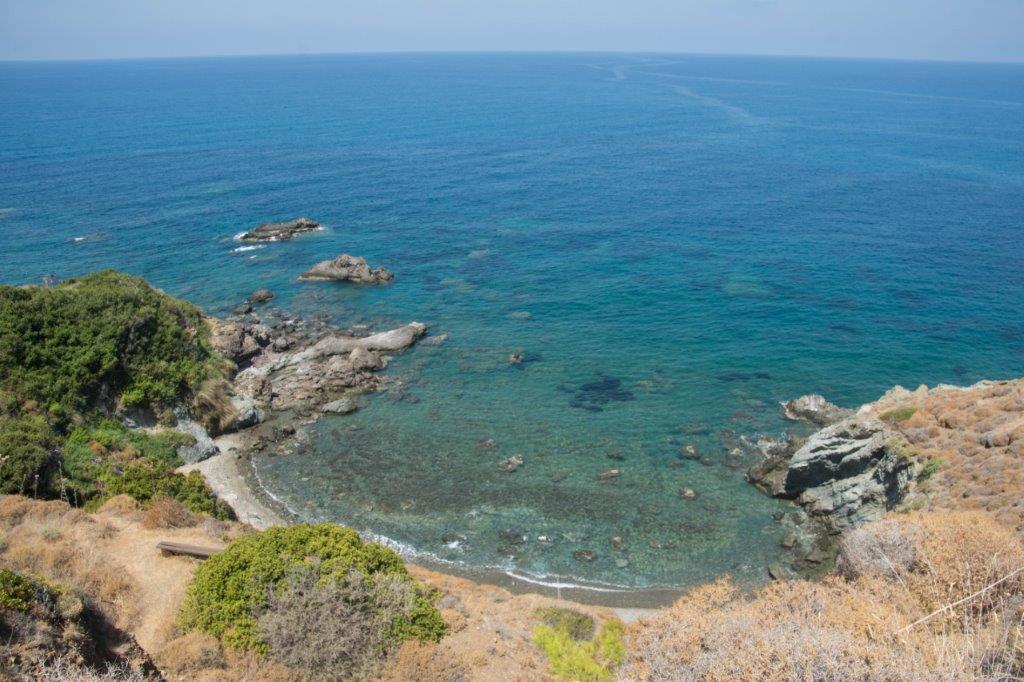
And then I spotted it. A thin, overgrown trail twisting downwards. We followed it tentatively, trying not to slip on loose rocks, holding onto thin spiky branches and ignoring the perilous drop to our right. We almost turned back when the trail disappeared into tall bushes. But then I caught sight of old wooden steps leading steeply downwards. So we carried on, ridiculously slowly, watching every step.
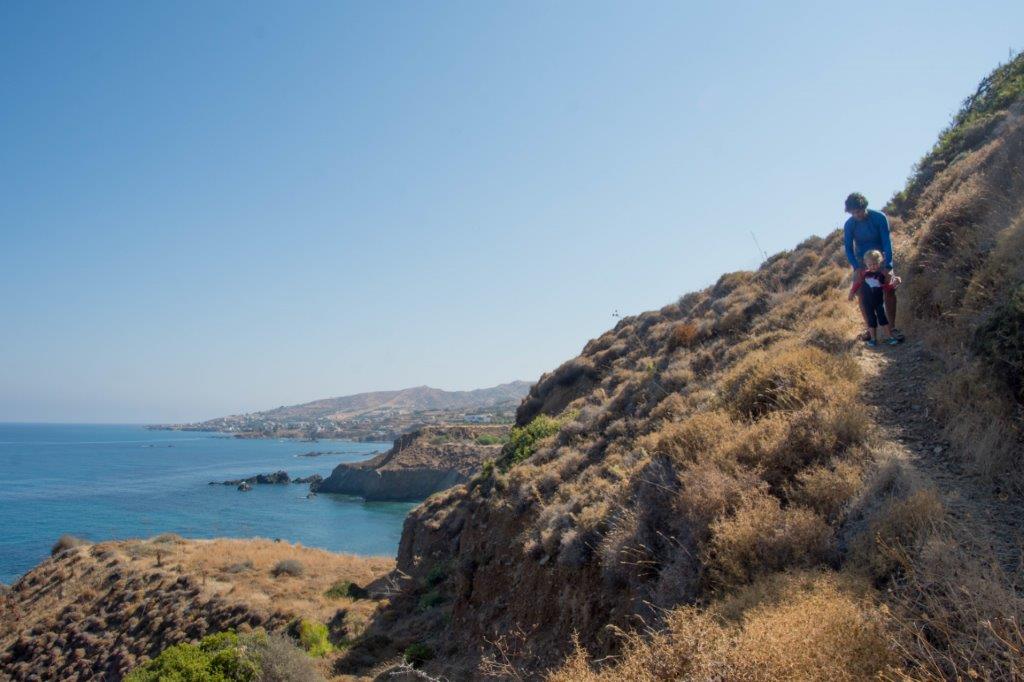
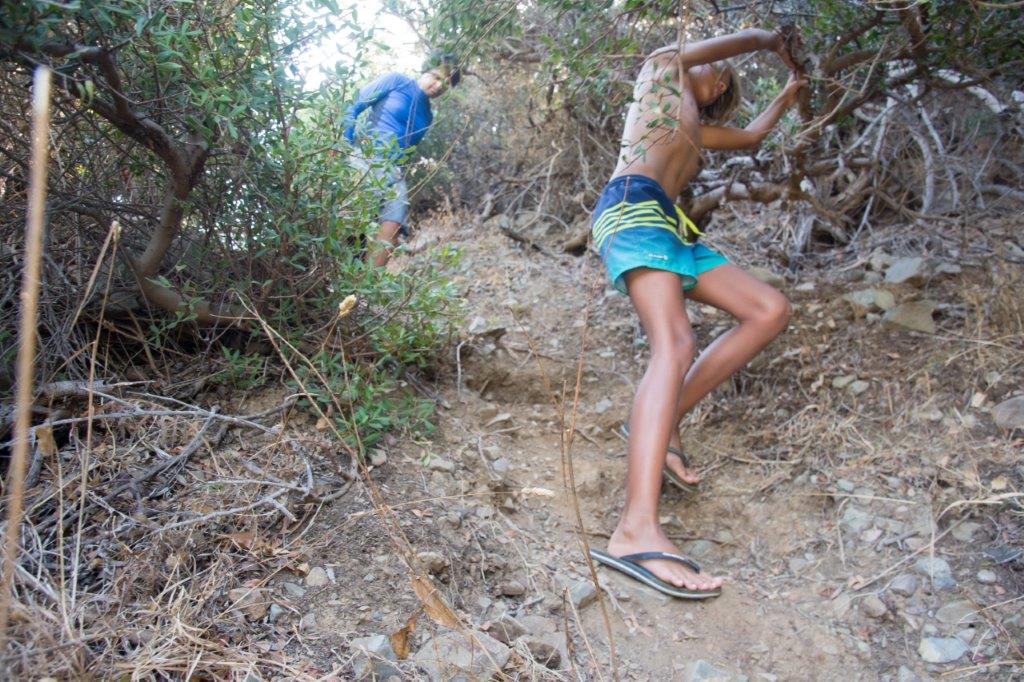
The steps turned a final corner and we raced down them and onto a pebbly beach. We’d done it! And it was totally, blissfully empty. There aren’t many places where you can have a cove all to yourself. It felt special because it felt like ours. Our Cove.
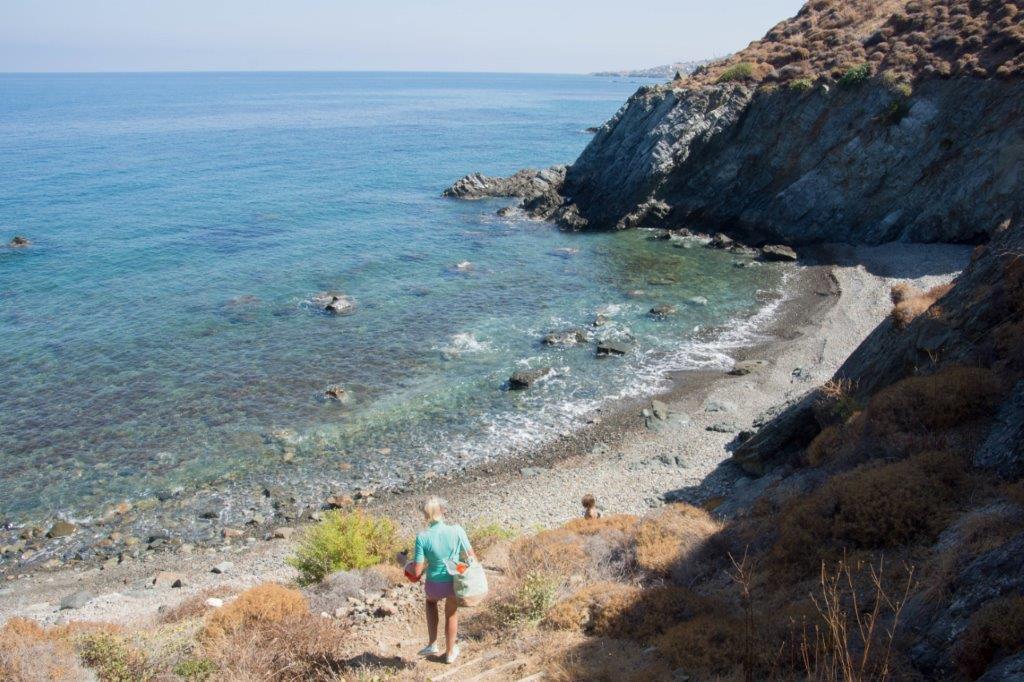
‘Only one thing could make this place more perfect,’ I said. ‘A cave.’
And then I saw it. A tiny, Herc-sized cave in the cliff. I appreciated the gesture.
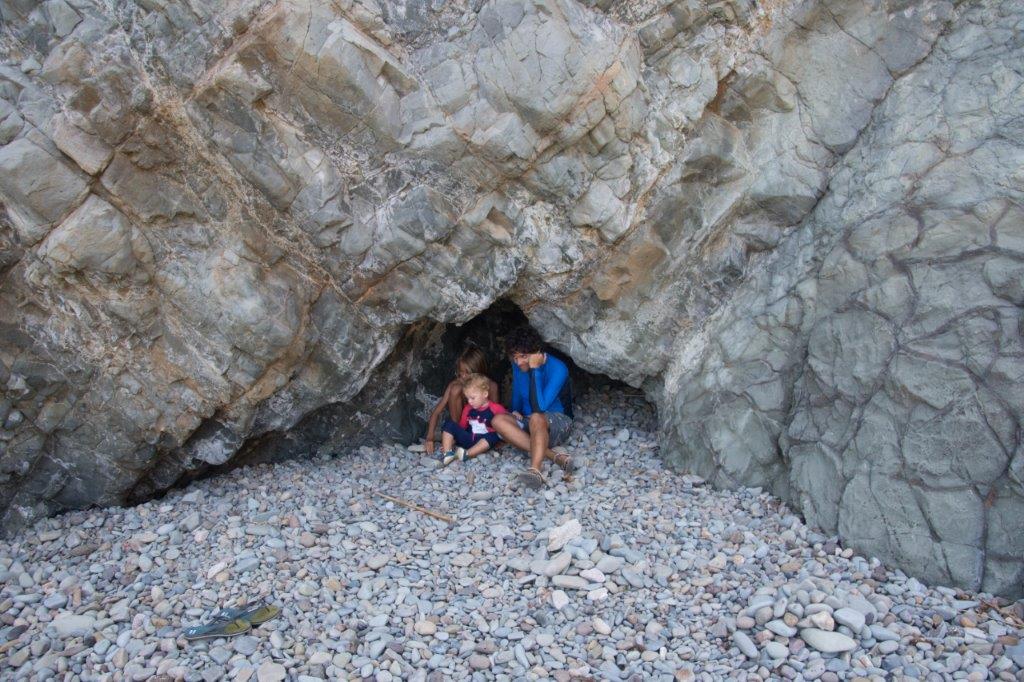
We walked along Our Cove collecting driftwood and pebbles. On the western end were some fabulous rock pools that entertained Herc while we took turns snorkelling.
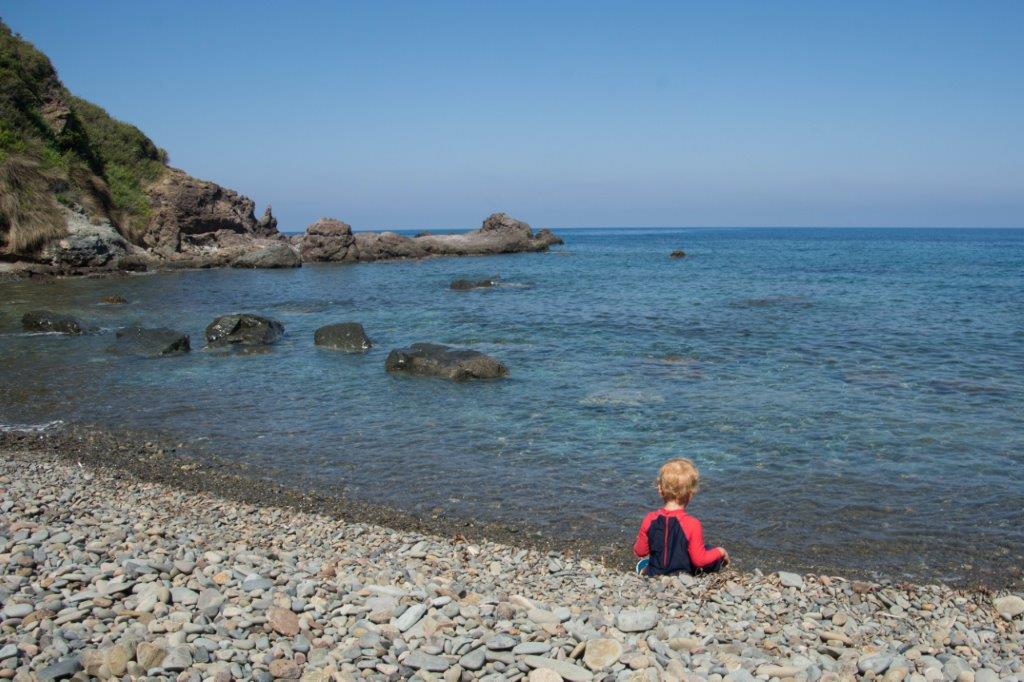
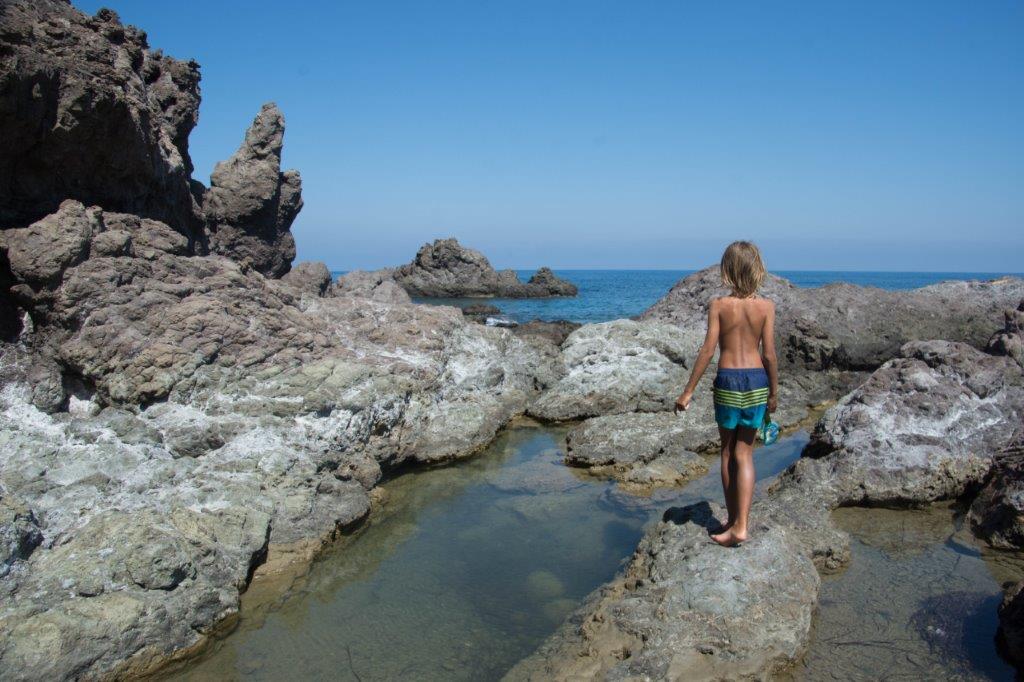
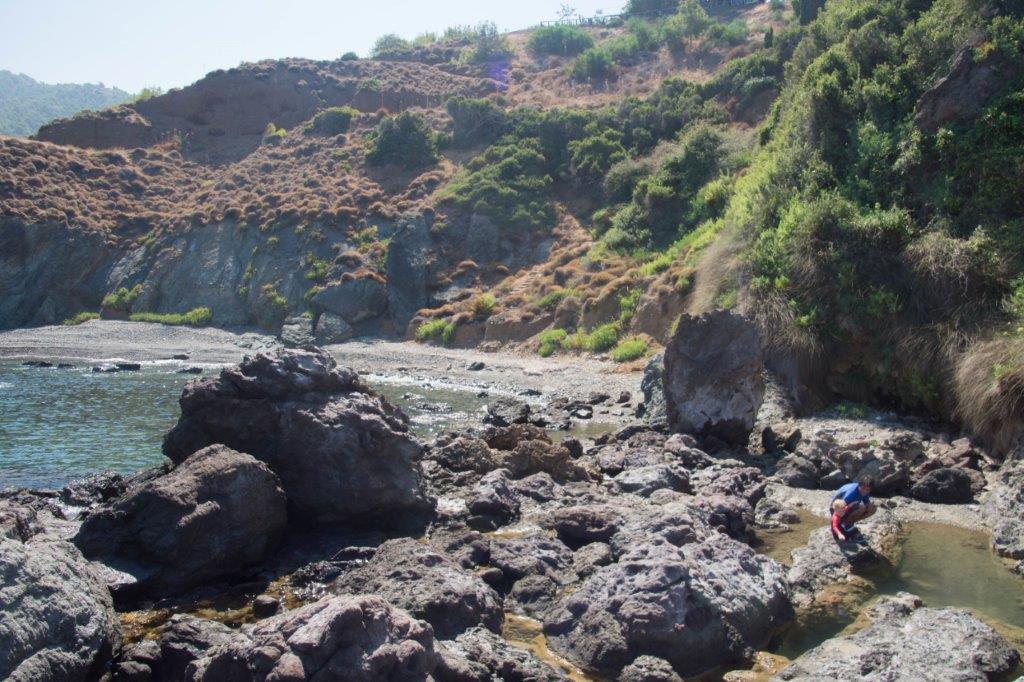
The cove was just as beautiful underwater as above. The large rocks at both ends of the cove were home to loads of fish species. Goatfish, bream, wrasse. pempheris and others that I couldn’t identify. There was even an underwater swim-through at the centre of a rocky island.
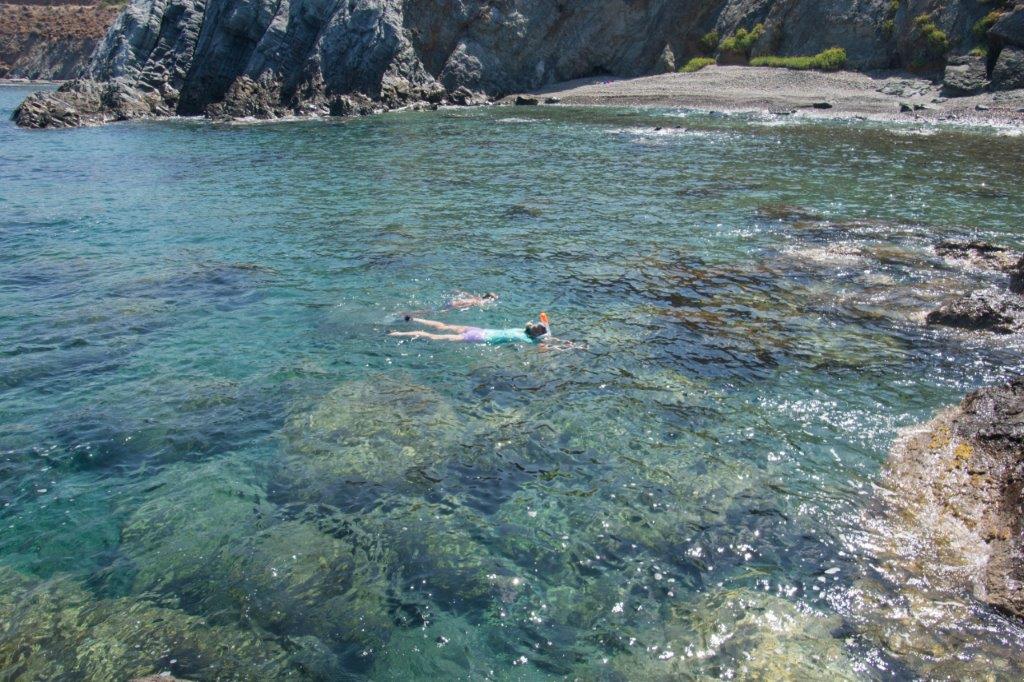
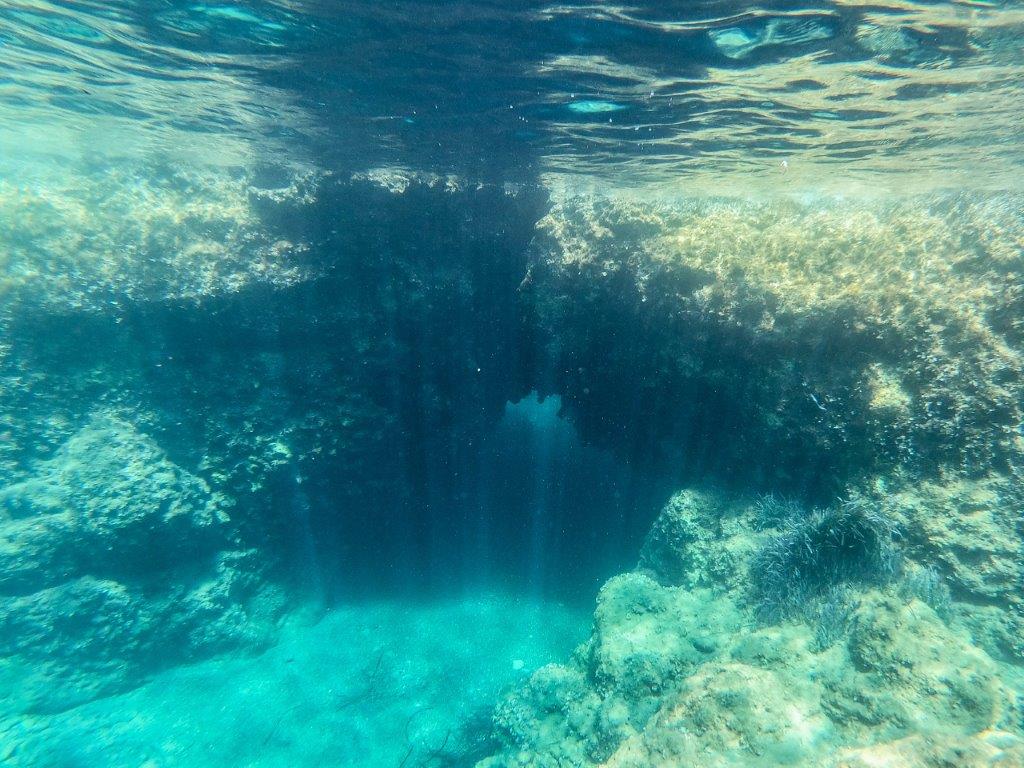
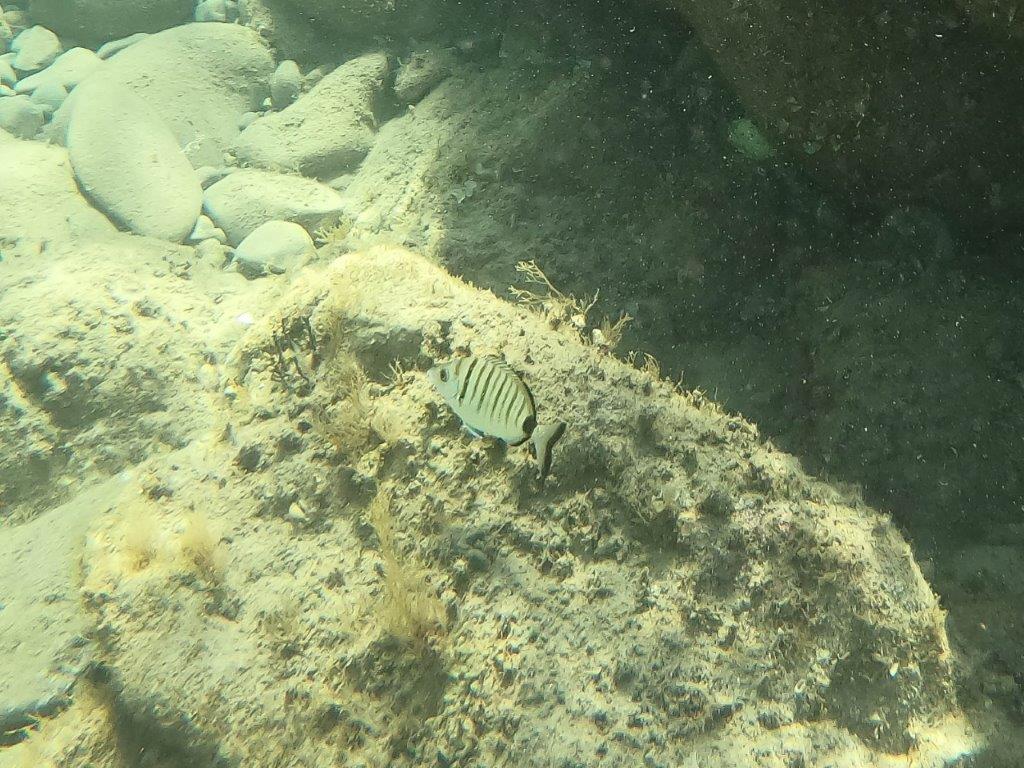
We spent a couple of hours in Our Cove before reluctantly making the climb back up to the car.
All I could think was, that was just one cove. How many more are out there to explore?
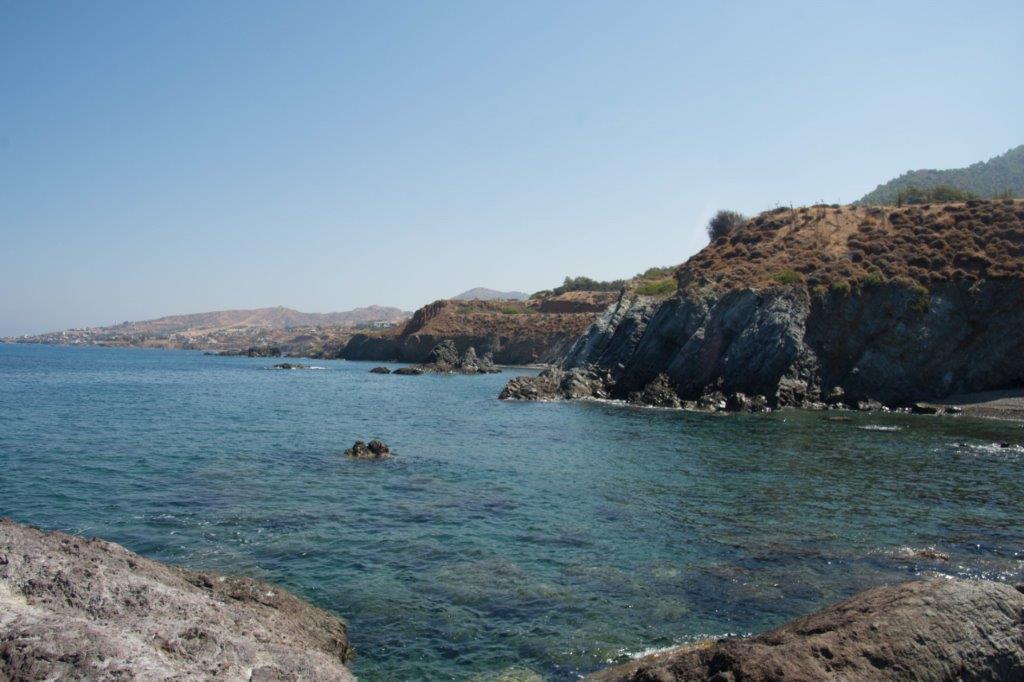
As if answering my question, I glanced out of the car window as we headed back to Argaka and caught a brief glimpse of a large cove with imposing red cliffs containing massive shadows. Caves?? Tomorrow we’d come back and look. If we could get to them.
Again, with the help of Google Maps I found a possible way to our second cove. A track that led to the headland before abruptly stopping. It turned out this was a farm track but we were able to take the Land Rover down it. We parked on the edge of the headland.
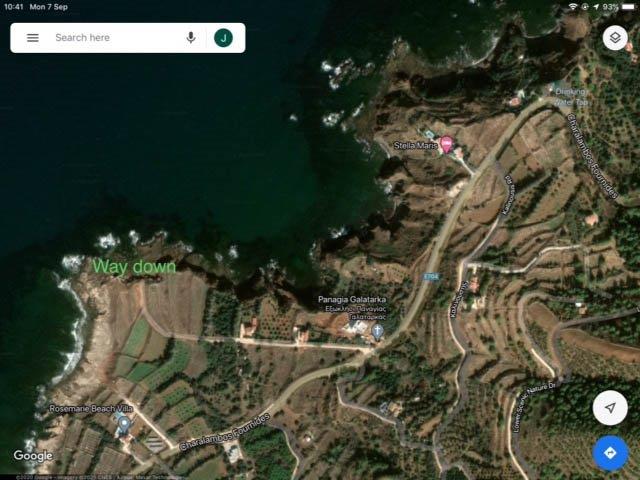
And once again, I spied a makeshift path disappearing over the edge of the cliff. I peered over. It wasn’t a steep cliff and we were easily able to climb down. Immediately I saw a cave to my left.
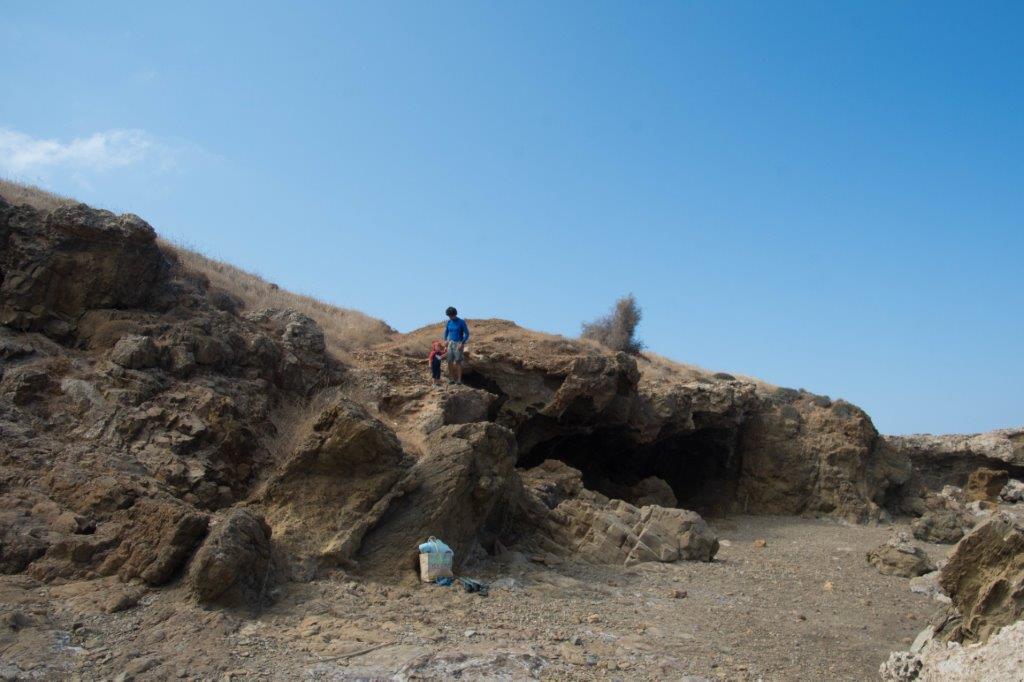
The landscape in this cove felt very different to Our Cove yesterday. It wasn’t relaxing and pretty. Instead of beach, the cliffs ended in a wide shelf of sharp rocks that looked like a network of tendons. The effect was otherworldly and dramatic. This cove was more exposed and waves crashed against the rocks, too rough to snorkel in.
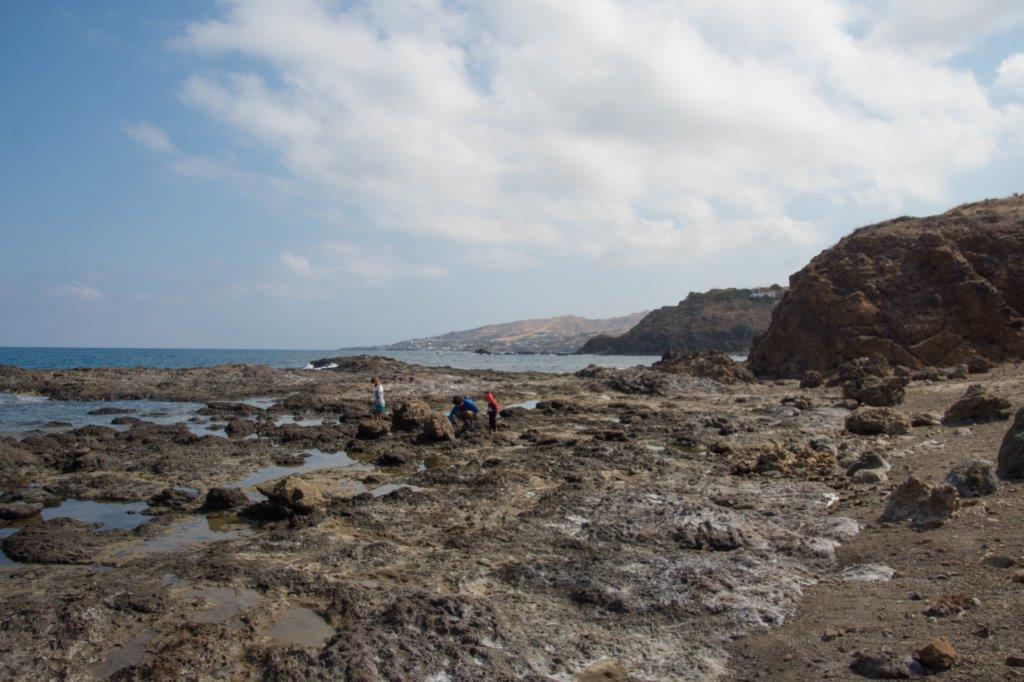
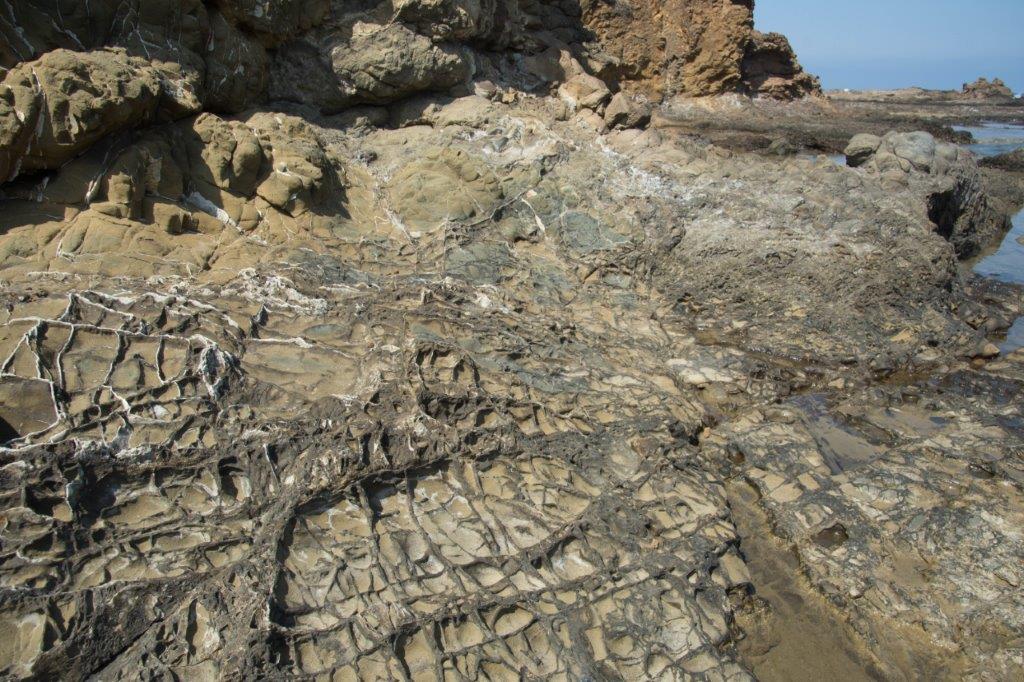
We rounded the corner and clambered beneath the cliffs I’d seen yesterday from the road. But the massive shadows that I’d thought were caves, were in fact giant crevices in the rock. Not as good as a cave but fun to explore. Each crevice hid a mini-cove behind it.
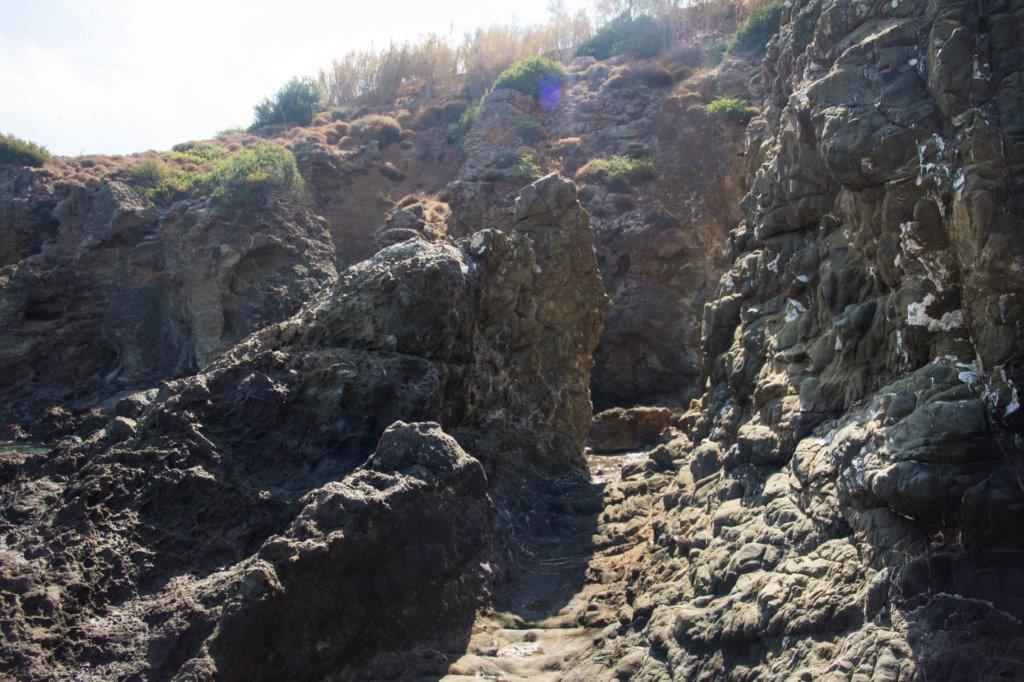
I walked as far as I could, hoping to come across a cave. What I did come across was a deep channel in the rock. Filled with blue water. It looked like an underwater pathway to the sea. The water in the channel was calm so we jumped in and snorkelled the tiny habitat filled with baby fish. It was a great finale to our cove exploration.
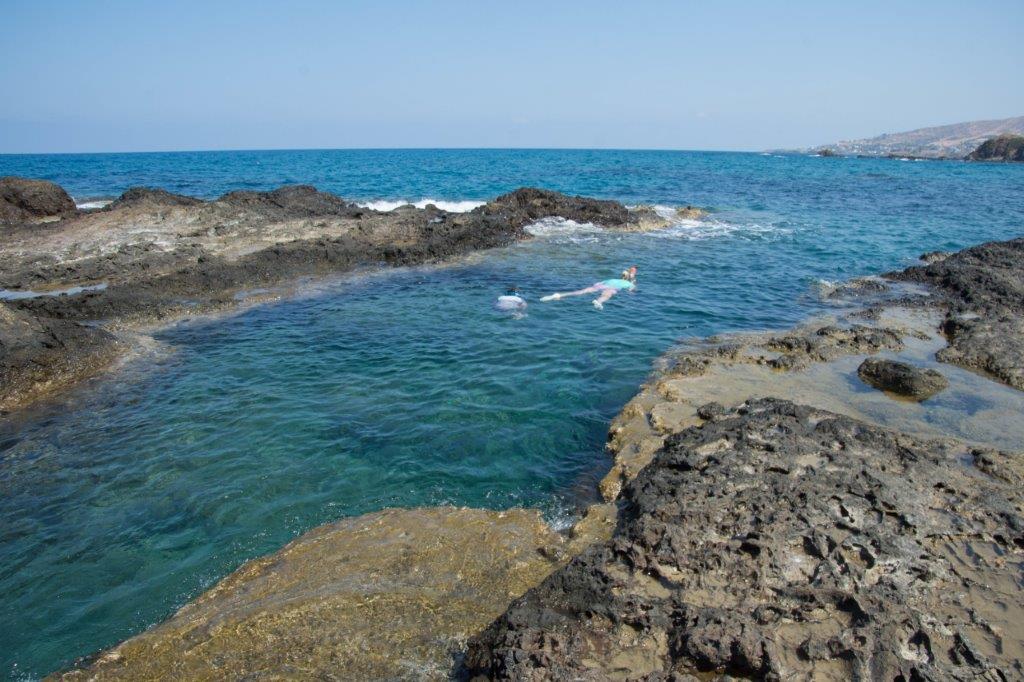
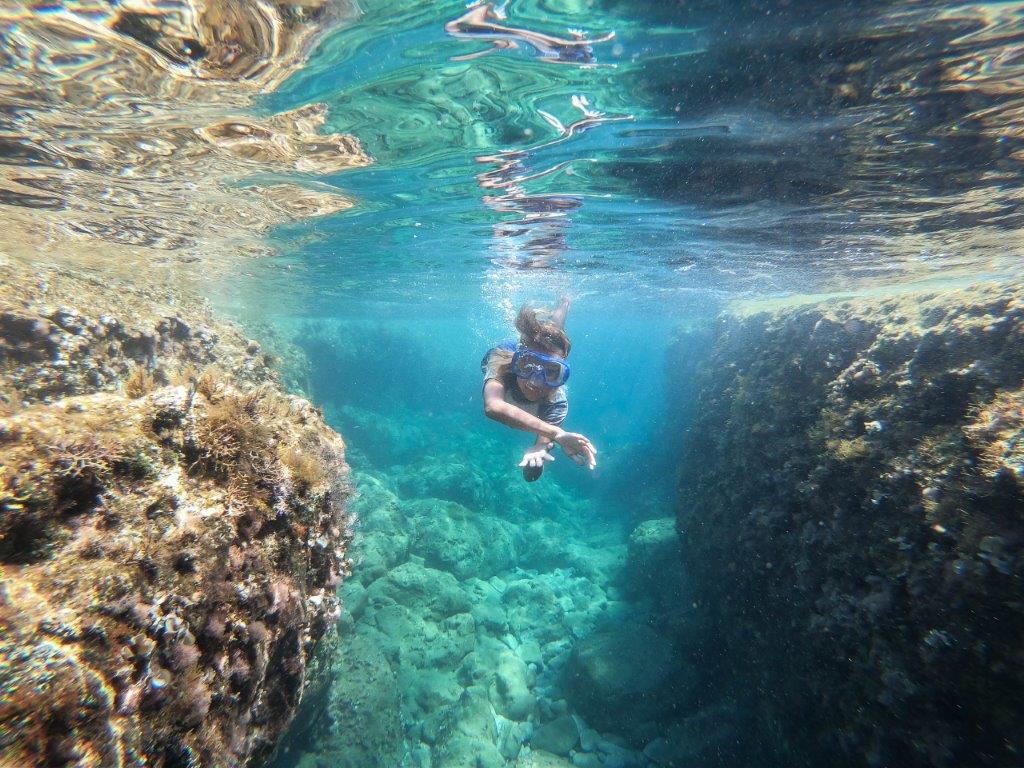
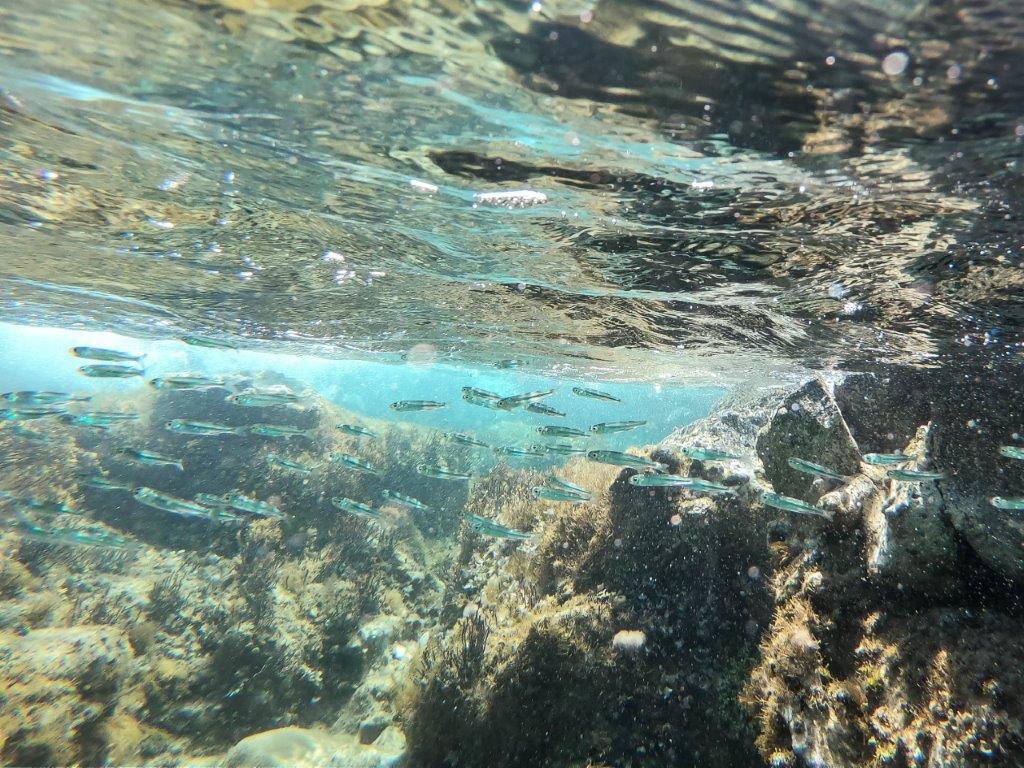
Two very different coves, both totally deserted. My need for remoteness had been truly satisfied.
But those were just two coves out of numerous ones, waiting to be explored. Ready to make you feel like you’re the first person ever to set foot in them. You just need satellite images, good walking shoes (not flip flops, Goobie!) and a ‘let’s see what we see’ attitude. And it’s there waiting for you. Waiting to become yours for the day.
And that for me was the Pomos x-factor.
I’d found it.
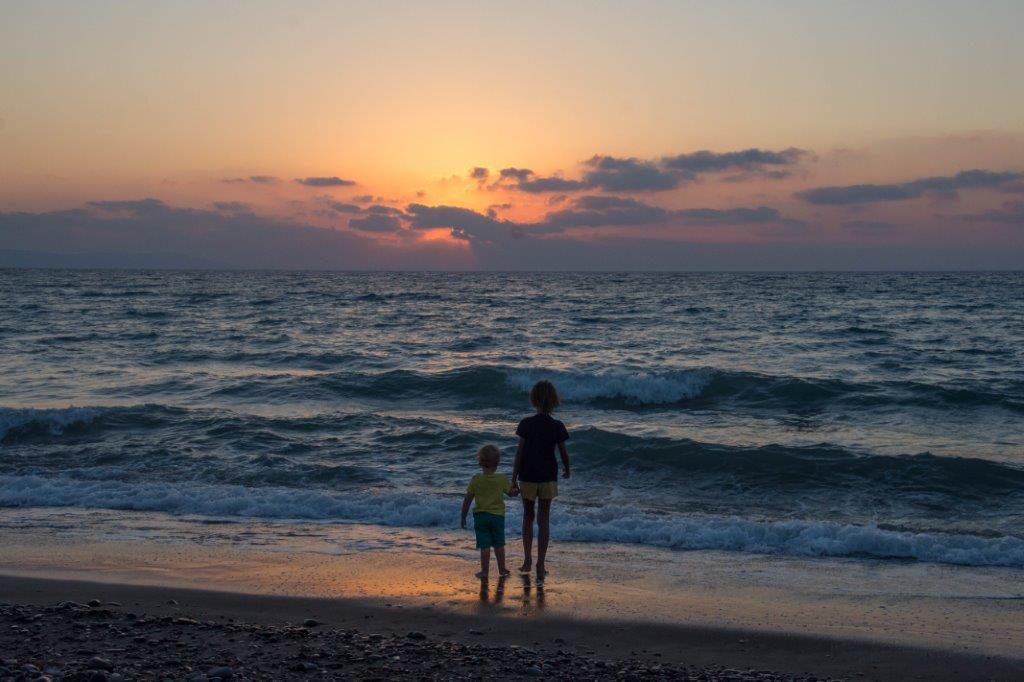
Leave a Reply